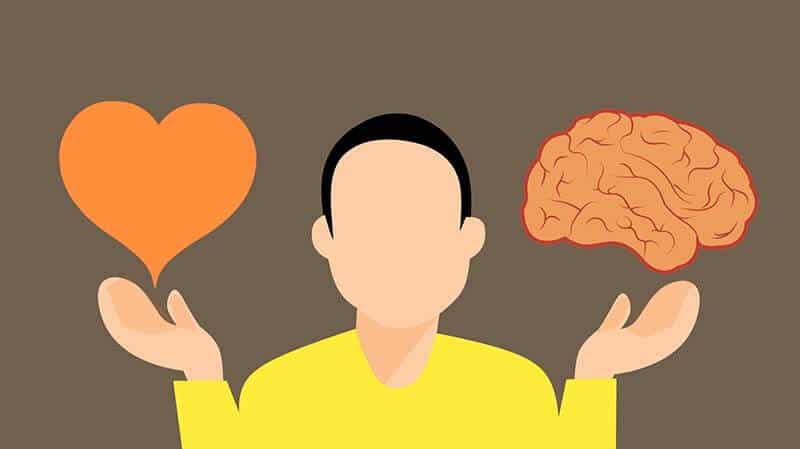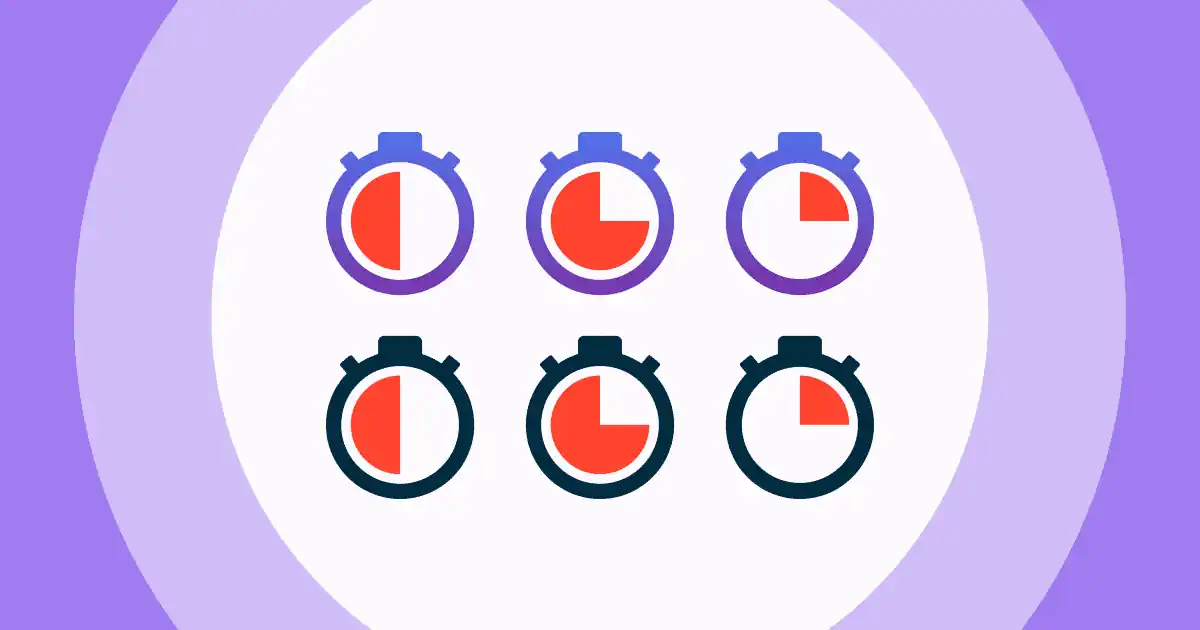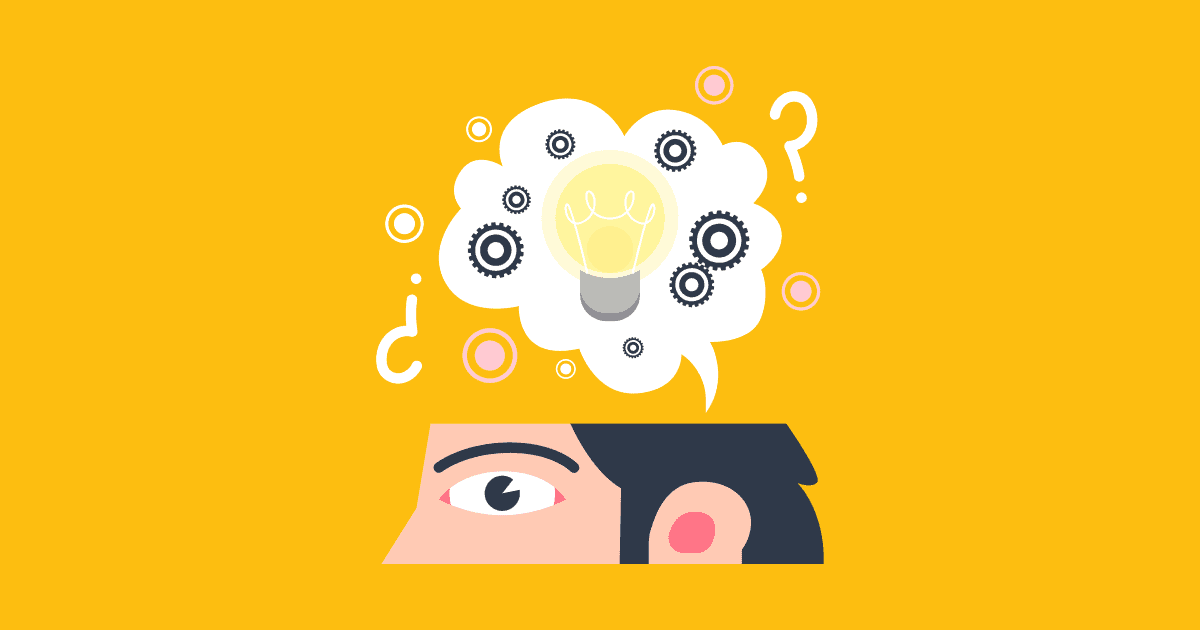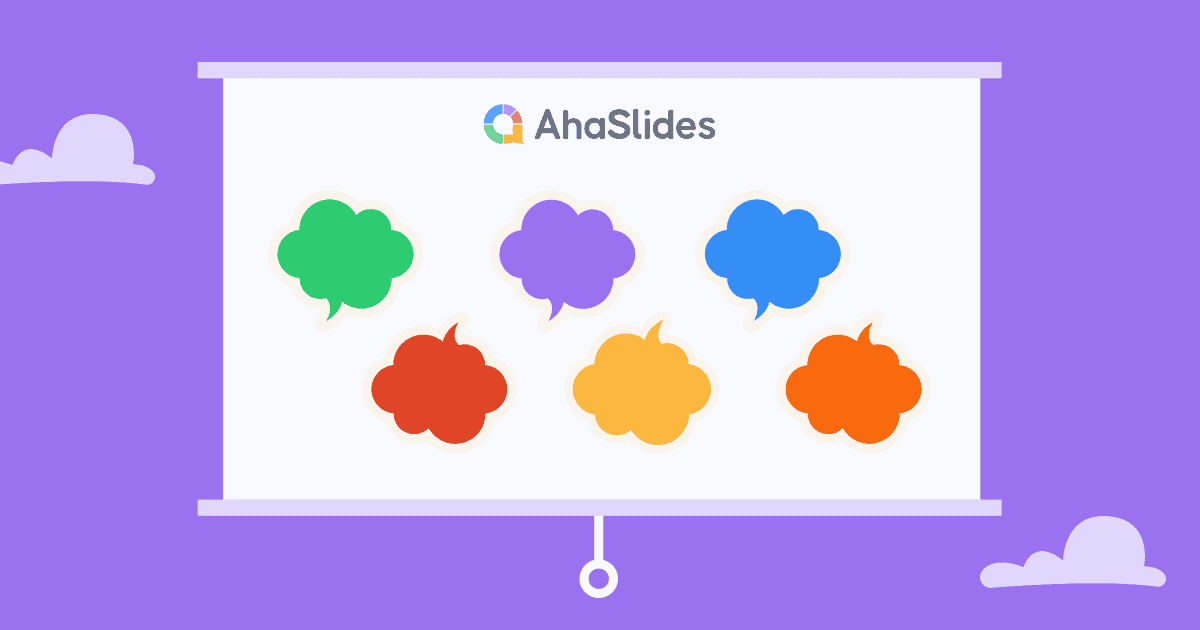तनावपूर्ण और तेज गति वाले वातावरण में, एक से अधिक अवसरों पर निर्णय लेने में अपने अंतर्ज्ञान पर भरोसा करना उपयोगी होता है।
लेकिन, यह जानना कि आपको कब आवेदन करना है सहज ज्ञान युक्त सोच पेचीदा है. यह समझना कि यह क्या है और आप इसे कैसे कार्यान्वित कर सकते हैं, आपको अच्छे परिणामों के साथ महान निर्णय लेने में मदद करेगा।
अधिक जानकारी प्राप्त करने के लिए गोता लगाएँ👇
विषय - सूची
- सहज सोच क्या है?
- सहज ज्ञान युक्त सोच के 4 प्रकार क्या हैं?
- क्या सहज विचार अच्छे या बुरे हैं?
- अधिक सहज विचारक बनने के लिए युक्तियाँ
- नीचे पंक्ति
- अक्सर पूछे जाने वाले प्रश्न
सॉफ्ट कौशल विकसित करने पर अधिक युक्तियाँ
| सहज सोच का विपरीत क्या है? | counterintuitive |
| 'सहज चिंतन' शब्द का आविष्कार किसने किया? | हेनरी बर्गसन |
| कब था'अंतर्ज्ञानी चिंतन' शब्द कहाँ पाया गया? | 1927 |

एक बेहतर जुड़ाव उपकरण खोज रहे हैं?
सर्वश्रेष्ठ लाइव पोल, क्विज़ और गेम के साथ और अधिक मज़ा जोड़ें, जो सभी AhaSlides प्रस्तुतियों पर उपलब्ध हैं, और आपके दर्शकों के साथ साझा करने के लिए तैयार हैं!
🚀 निःशुल्क साइन अप करें☁️
सहज सोच क्या है?

कल्पना कीजिए कि आप होम प्लेट पर खड़े एक पेशेवर बेसबॉल खिलाड़ी हैं। पिचर ने गेंद को घुमाकर सीधे आप पर तेज़ गेंद फेंकी। आपके पास प्रतिक्रिया करने के लिए बस एक सेकंड है - सचेत रूप से सोचने का समय नहीं है!
लेकिन कुछ आश्चर्यजनक होता है - आपका शरीर जानता है कि क्या करना है। बिना किसी तर्क के, आपके हाथ अपनी स्थिति में आ जाते हैं और चटक जाते हैं! आपको एकदम सही हिट मिलती है।
वह अंतर्दृष्टि कहां से आई? आपका अंतर्ज्ञान.
गहराई में, आपके मस्तिष्क का कुछ हिस्सा गेंदबाज की गति, गेंद का घूमना आदि जैसे सूक्ष्म संकेतों को पहचानता है और अभ्यास तथा पिछले खेलों में हजारों बार दोहराए जाने के आधार पर जानता है कि किस प्रकार प्रतिक्रिया करनी है।
यह सहज ज्ञान युक्त सोच है। यह हमें लगभग तुरंत समृद्ध अनुभवों का लाभ उठाने और बिना किसी जानबूझकर तर्क के "अंतर्ज्ञानी निर्णय" लेने की अनुमति देता है।
जैसे कि टॉप गन में क्रूज़ हवाई लड़ाई में सिर्फ सही चाल को महसूस करता है या नियो मैट्रिक्स कोड को बिना समझे देखता है।
सबसे अच्छी बात? अंतर्ज्ञान सिर्फ प्रतिक्रियाओं के लिए नहीं है - यह अंतर्दृष्टि और सृजन के लिए भी एक महाशक्ति है।
समझ या नवीन समाधानों के वे “अहा!” क्षण अक्सर हमारे अंतर्ज्ञान से उभरते हैं, इससे पहले कि तर्क उन्हें पूरी तरह से समझा सके।
सहज ज्ञान युक्त सोच के 4 प्रकार क्या हैं?
सहज सोच को आम तौर पर 4 प्रकारों में वर्गीकृत किया जाता है, प्रत्येक की अलग-अलग विशेषताएं होती हैं। आप किस प्रकार के सहज विचारक हैं?🤔
संज्ञानात्मक अंतर्ज्ञान

इसमें उन पैटर्नों और निष्कर्षों तक पहुंचना शामिल है जिन्हें हमने संज्ञानात्मक चुनौतियों के अनुभव के माध्यम से अनजाने में सीखा है।
यह त्वरित स्कीमा मिलान और निर्णय की अनुमति देता है। उदाहरणों में व्याकरण पैटर्न को तुरंत पहचानना, जटिल समस्या को हल करना, परिचित पैटर्न के आधार पर गणित की समस्या का उत्तर देना, या जोखिम/भरोसेमंदता का मूल्यांकन शामिल है।
प्रभावशाली अंतर्ज्ञान

इसे आंत भावनाएं भी कहा जाता है। यह प्रकार अंतर्ज्ञान को निर्देशित करने के लिए भावनाओं और संवेदनाओं पर अधिक निर्भर करता है।
बिना किसी सचेत तर्क के चीज़ें हमें सही लग सकती हैं या असहज कर सकती हैं। यह पारस्परिक निर्णय, धोखे का पता लगाने और नैतिक/नैतिक निर्णय लेने जैसी चीज़ों से जुड़ा है जहाँ भावनाएँ एक भूमिका निभाती हैं।
विश्लेषणात्मक अंतर्ज्ञान

किसी कौशल या डोमेन में वर्षों तक व्यापक विचार-विमर्श और स्वचालित सीखने से विकास होता है।
विशेषज्ञ जटिल स्थितियों की सहजता से व्याख्या कर सकते हैं और उचित प्रतिक्रिया दे सकते हैं। उदाहरणों में मास्टर शतरंज खिलाड़ी, विशेषज्ञ चिकित्सक और अपने क्षेत्र में गहन अनुभव वाले अन्य पेशेवर शामिल हैं।
सन्निहित अंतर्ज्ञान

मांसपेशियों, प्रोप्रियोसेप्टिव और संवेदी शिक्षा पर निर्भर करता है।
शारीरिक अभ्यास और गतिविधि-आधारित सामाजिक अनुभवों के माध्यम से विकसित होता है। समन्वय कौशल, संतुलन, चेहरे की अभिव्यक्ति, शारीरिक भाषा आदि के माध्यम से गैर-मौखिक भावनात्मक/सामाजिक संकेतों की व्याख्या करना जैसी चीजें इस श्रेणी में आती हैं।
कुछ में ये भी शामिल हैं:
- सामाजिक अंतर्ज्ञान - सचेत तर्क के बिना सामाजिक गतिशीलता, मानदंडों और अंतःक्रियाओं को सहज रूप से समझने की क्षमता को संदर्भित करता है। इसके प्रभाव वाले क्षेत्रों में भावनाओं की व्याख्या करना, व्यवहारों की भविष्यवाणी करना, रिश्तों और शक्ति संरचनाओं को समझना और समूह के प्रभावों/गतिशीलता को समझना शामिल है।
- उत्पादक अंतर्ज्ञान - विभिन्न प्रकार की सूचनाओं को सहज रूप से संश्लेषित करके नए विचारों, नवाचारों को जगाना या समस्याओं को नए तरीके से देखना। उदाहरणों में आविष्कार, अभिनव डिजाइन, सफल वैज्ञानिक सिद्धांत और कला/मानविकी में अप्रत्याशित दृष्टिकोण शामिल हैं।
सभी चार प्रकार त्वरित अंतर्दृष्टि प्रदान करते हैं जिन्हें सचेत रूप से एक्सेस करना धीमा हो सकता है। और वे अक्सर परस्पर क्रिया करते हैं - संज्ञानात्मक पैटर्न भावात्मक प्रतिक्रियाओं को ट्रिगर कर सकते हैं जो लंबे समय तक अनुभवात्मक सीखने को प्रभावित करते हैं। किसी भी प्रकार के अंतर्ज्ञान को प्रभावी ढंग से विकसित करना खुद को लगातार नए अनुभवों और चिंतनशील सीखने के लिए उजागर करने पर निर्भर करता है।
क्या सहज विचार अच्छे या बुरे हैं?

सहज सोच एक दोधारी तलवार है। यह अत्यधिक फायदेमंद हो सकता है जब विशेषज्ञता व्यापक अनुभव के माध्यम से बनाई गई हो, लेकिन जब सबूत के आधार की कमी वाले उच्च जोखिम वाले निर्णयों पर भरोसा किया जाता है तो यह खतरनाक हो सकता है।
सहज सोच के संभावित लाभों में शामिल हैं:
- गति - अंतर्ज्ञान बहुत अनुमति देता है तेजी से निर्णय लेना जब समय सीमित हो. ये फायदेमंद हो सकता है.
- अनुभव-आधारित अंतर्दृष्टि - अंतर्ज्ञान अनुभव के अचेतन सबक को सम्मिलित करता है, जो उपयोगी दृष्टिकोण प्रदान कर सकता है।
- रचनात्मकता - अंतर्ज्ञान नए संपर्क और नवीन, अनोखे विचारों को जन्म दे सकता है।
- प्रारंभिक अनुमान - सहज ज्ञान युक्त आंतरिक भावनाएं आगे के अन्वेषण और सत्यापन के लिए एक प्रारंभिक बिंदु के रूप में कार्य कर सकती हैं।
सहज सोच की संभावित कमियों में शामिल हैं:
- पूर्वाग्रह - अंतर्ज्ञान संज्ञानात्मक पूर्वाग्रहों जैसे कि एंकरिंग, प्रभाव अनुमान और समूह पक्षपात के प्रति संवेदनशील होता है, जो निर्णयों को प्रभावित करते हैं।
- अमान्य पैटर्न - सहज ज्ञान युक्त पैटर्न ठोस सबूत के बजाय अप्रचलित, गलत या एकबारगी पिछले अनुभवों पर आधारित हो सकते हैं।
- औचित्य-अंतर्ज्ञानी विचारों की सत्यता की निष्पक्ष जांच करने के बजाय उन्हें उचित ठहराने की प्रवृत्ति होती है।
- विस्तार की अपेक्षा समग्रता - अंतर्ज्ञान महत्वपूर्ण सूक्ष्मताओं का सावधानीपूर्वक विश्लेषण करने के बजाय व्यापक विषयों पर ध्यान केंद्रित करता है।
- आत्मसंतुष्टि - अंतर्ज्ञान भावनाओं के साथ चलने के पक्ष में गहन विचार-विमर्श करने को हतोत्साहित कर सकता है।
अधिक सहज विचारक बनने के लिए युक्तियाँ

अधिक सहज विचारक बनने के लिए यहां कुछ सुझाव दिए गए हैं। समय के साथ, ये रणनीतियाँ विविध, चिंतनशील प्रदर्शन और लचीले ढंग से सोच के माध्यम से आपकी सहज सोच को मजबूत करती हैं:
- अपने क्षेत्र में व्यापक व्यावहारिक अनुभव प्राप्त करें। अंतर्ज्ञान अनजाने में आपके सामने आने वाली चीज़ों में पैटर्न को पहचानने से आता है। लगातार खुद को चुनौती देते रहें।
- सचेतनता और आत्म-जागरूकता का अभ्यास करें। बिना किसी निर्णय के अपनी आंतरिक भावनाओं और अनुमानों पर ध्यान दें। समय के साथ, आप अपने अंतर्ज्ञान पर अधिक भरोसा करना सीखेंगे।
- भिन्न सोच को प्रोत्साहित करें. असंबंधित अवधारणाओं के बीच संबंध बनाएं। व्यापक मंथन करें. अंतर्ज्ञान विचारों को नए तरीकों से जोड़ता है।
- समस्या-समाधान के दौरान ब्रेक लें। ऊष्मायन आपके अवचेतन मन से अंतर्ज्ञान को सतह पर लाने की अनुमति देता है। टहलने जाएं और अपने मन को भटकने दें।
- मेटाकॉग्निशन विकसित करें। पिछले अंतर्ज्ञान का विश्लेषण करें - क्या सही था और क्यों? अपनी सहज शक्तियों के बारे में आत्म-ज्ञान विकसित करें।
- अपने सपनों/दिवास्वप्नों पर ध्यान दें। ये तार्किक मानदंडों के बाहर सहज अंतर्दृष्टि प्रदान कर सकते हैं।
- अपनी विशेषज्ञता से भिन्न डोमेन का अध्ययन करें। नवीन जानकारी आपके सहज जुड़ाव और समस्या-समाधान के कोणों को बढ़ावा देती है।
- आंत प्रतिक्रिया बर्खास्तगी से बचें. कूबड़ को त्यागने से पहले आगे की जांच का मौका दें।
नीचे पंक्ति
सहज ज्ञान युक्त सोच, चरण-दर-चरण तर्क के बजाय तेज़, अवचेतन पैटर्न पहचान, भावनाओं और अनुभव पर निर्भर करती है। अभ्यास के साथ, हम अपने अंतर्ज्ञान को लगभग छठी इंद्री की तरह काम करने के लिए प्रशिक्षित कर सकते हैं - जिससे हम किसी भी परिदृश्य में बेहतरीन समस्या समाधानकर्ता बन सकते हैं।
अक्सर पूछे जाने वाले प्रश्न
सहज ज्ञान युक्त विचारक क्या करते हैं?
सहज ज्ञान युक्त विचारक मुख्य रूप से अपनी आंतरिक भावनाओं, अनुभव के माध्यम से पहचाने जाने वाले अंतर्निहित पैटर्न और समस्याओं से निपटने, निर्णय लेने और खुद को व्यक्त करने के दौरान सख्त तार्किक विश्लेषण के बजाय सहज रूप से अलग-अलग विचारों को जोड़ने की क्षमता पर भरोसा करते हैं।
सहज सोच का उदाहरण क्या है?
सहज ज्ञान युक्त सोच को दर्शाने वाले एक उदाहरण में शामिल है: एक शतरंज ग्रैंडमास्टर सभी संभावनाओं का सचेत रूप से विश्लेषण किए बिना तुरंत सबसे अच्छा अगला कदम पहचान लेता है। उनका अंतर्ज्ञान विशाल अनुभव पर आधारित होता है, या एक अनुभवी डॉक्टर सूक्ष्म संकेतों के आधार पर किसी मरीज में अपरिचित लक्षणों के कारण का पता लगाता है और कुछ गड़बड़ होने का “अनुभव” करता है, भले ही परीक्षण के परिणाम अभी तक इसकी व्याख्या न करें।
क्या तार्किक होना बेहतर है या सहज ज्ञान युक्त?
इस बात का कोई सरल उत्तर नहीं है कि तार्किक होना स्वाभाविक रूप से बेहतर है या सहज ज्ञान युक्त होना - दोनों में ताकत और कमज़ोरियाँ हैं। इस विचार को आम तौर पर दो दृष्टिकोणों का संतुलन माना जाता है।








